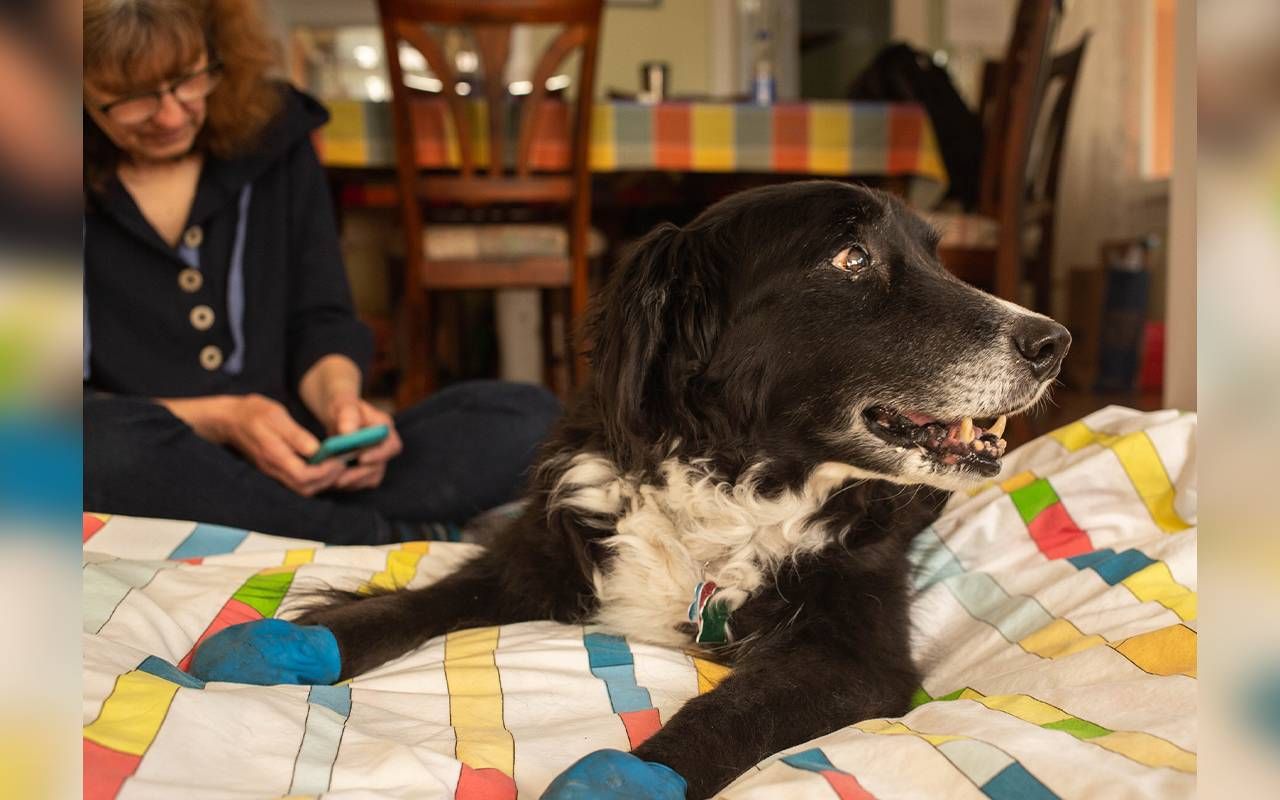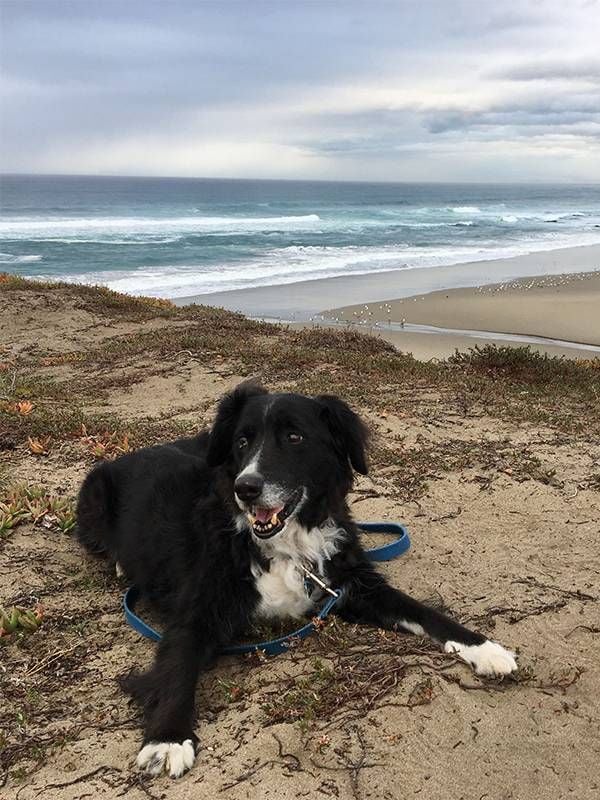Yes, You Can Clone Your Pet, But Do You Want To?
Here's what you should know before taking the pricey plunge
The clock started ticking more than 20 years ago when the world said, "Hello, Dolly," to the globe's first cloned sheep. At that point, it was only a matter of time before producing genetic duplicates of all sorts of animals would become ho-hum.
That time has arrived for dogs, cats, and various other household pets (not to mention at least one wild ferret).

For a tidy sum that would quickly close the deal on a brand new car, a growing handful of companies will harvest DNA from your recently deceased (or living) fur baby and deliver a genetically identical critter in six months or so.
"Like a human being, the kind of dog he was was an expression of a lot more than just his DNA."
The laboratory part of this process is technically called somatic cell nuclear transfer. Lab technicians harvest DNA from the donor cells and plant it in an unfertilized egg. Nature takes it from there, and the actual gestation is inside an animal "surrogate."
"If I can take one of your skin cells and go through this process of somatic cell nuclear transfer: pop it into an egg, the nuclear DNA is a hundred percent from you," explains Ben Hurlbut, associate professor and science ethicist at Arizona State University.
"So it's a genetically identical match to you. In other words, it's a clone."
Nature vs. Nurture
But, he cautions, "genetics ain't everything. The developmental environment matters. Is your dog that grew up with your two-year-old going to be the same if it doesn't grow up with your two-year-old?"
It's a point well articulated by Dan Brekke, 68, of Berkeley, California. He and his wife, Kate, recently lost their beloved dog, Scout. "Sure, it crossed our mind momentarily," he admits.

"But I think my take on it – with both our dog and with the idea, in general, is that just like a human being, the kind of dog he was was an expression of a lot more than just his DNA."
Brekke wrote a heartrending remembrance of Scout on his blog, which is well worth reading (with a few tissues at hand).
"You're not cloning personality," agrees Sharona Hoffman, a professor of law and bioethics at Case Western Reserve University in Cleveland.
"Personality is not a product of DNA, certainly not purely a product of DNA. So it could have a completely different personality. And I think if you read reports of people with cloned pets, like Barbra Streisand, they say the pet was different."
Ethical Considerations
This "nature-vs.-nurture" argument came up repeatedly among comments on social media solicited for this story. However, others are given pause by ethical considerations, including the use of surrogate animals to grow the embryos and the overwhelming numbers of animals languishing in shelters for lack of homes.
"You're putting a lot of lab animals through medical procedures that are unnecessary, that are not of benefit to them, and can harm them," notes Hoffman. "You must harvest eggs; you must have pregnant animals."
And, she says, it doesn't always work. "There's only about a twenty percent success rate. So to get a successful clone, you must do this to a bunch of animals."
At a deeper psychological level, some who oppose the practice worry that cloning a beloved pet in some way deprives us of an essential part of the grieving process.
Short-Cutting Grief
"I find there to be something kind of perverse in the attempt to replicate an animal with whom you had a deep personal relationship — a pet you loved, precisely because you want to repeat that experience somehow," says Hurlbut.
At a deeper psychological level, some worry that cloning a beloved pet in some way deprives us of an essential part of the grieving process.
"You're certainly not letting go and moving forward," adds Hoffman. Instead, you are trying to relive the past, and you may be very disappointed, and there probably is something very healthy about closure – about mourning – the loss of the pet and then adopting a new pet."
Still, there's already a proven, if rarified, market for pet cloning – and one with enormous potential. In 2018, the American Veterinary Medicine Association estimated that nearly six in ten (57%) U.S. households included some pets.
During the lonely years of the pandemic, adoptions soared, and that figure spiked to 70%, according to a recent estimate by the American Pet Products Association. That's tens of millions of dogs and cats alone.
Nonetheless, players in the nascent pet-cloning industry prefer a low profile. Requests by Next Avenue for interviews at two companies were essentially ignored.
On the website for a Chinese cloner, Sinogen, the contact page shows what appears to be a smiling customer service rep on a phone headset, but the site offers no phone number, only an email form for inquiries.
And on the Texas-based ViaGen Pet Services staff page, executives and key personnel are identified only by their first names.
A Princely Sum For Rex
According to the American Pet Products Association, pet owners spent more than $123 billion on their pets in 2021, which does not include money spent on cloning services.
"I've always told people that I cloned not because I wanted to bring my cat back to life, but because I wanted to carry on a piece of her."
But according to an international research group, the cloning market for dogs alone is "projected to reach multi-million by 2028." That will be easy to achieve, given the cost. ViaGen will clone your dog for $50,000. That's more than the current average cost of a new car.
Cat owners get a break: only $35,000. Long Island-based BioVenic's rates are slightly lower but in the same range. They'll also do rabbits for $5,900 or for a lesser fee, store your pet's DNA until you're ready.
ViaGen promises "guaranteed" puppies and kittens, verified by a third-party lab to be genetic duplicates and declared healthy by a veterinarian.
Some people who've cloned their pets think the money was well spent. In April, a ViaGen representative told the Washington Post that business had been growing steadily for the past six years.
"I've always told people that I cloned not because I wanted to bring my cat back to life, but because I wanted to carry on a piece of her," ViaGen client Kelly Anderson told the Post. "And I think it's comforting to have that. It's comforting in a way that I don't know how to explain."
Cloning Opinions Remain Sharply Divided
"There will never be another cat like Mike," says Darlene Martin, 72, of the cat she and her husband, Roger, cherished for 19 years in Newport News, Virginia.
"Full of personality. Lovable and also an incredible pain in the ass," she adds with obvious affection. "But would it honor him to try to make another one of him?" she wonders.
"We couldn't recreate the life experiences that made him. Are we so pathetic that we must recreate a past that can't be relived? I think not. Adopt another creature to share your home and love. Move on."

Read More

